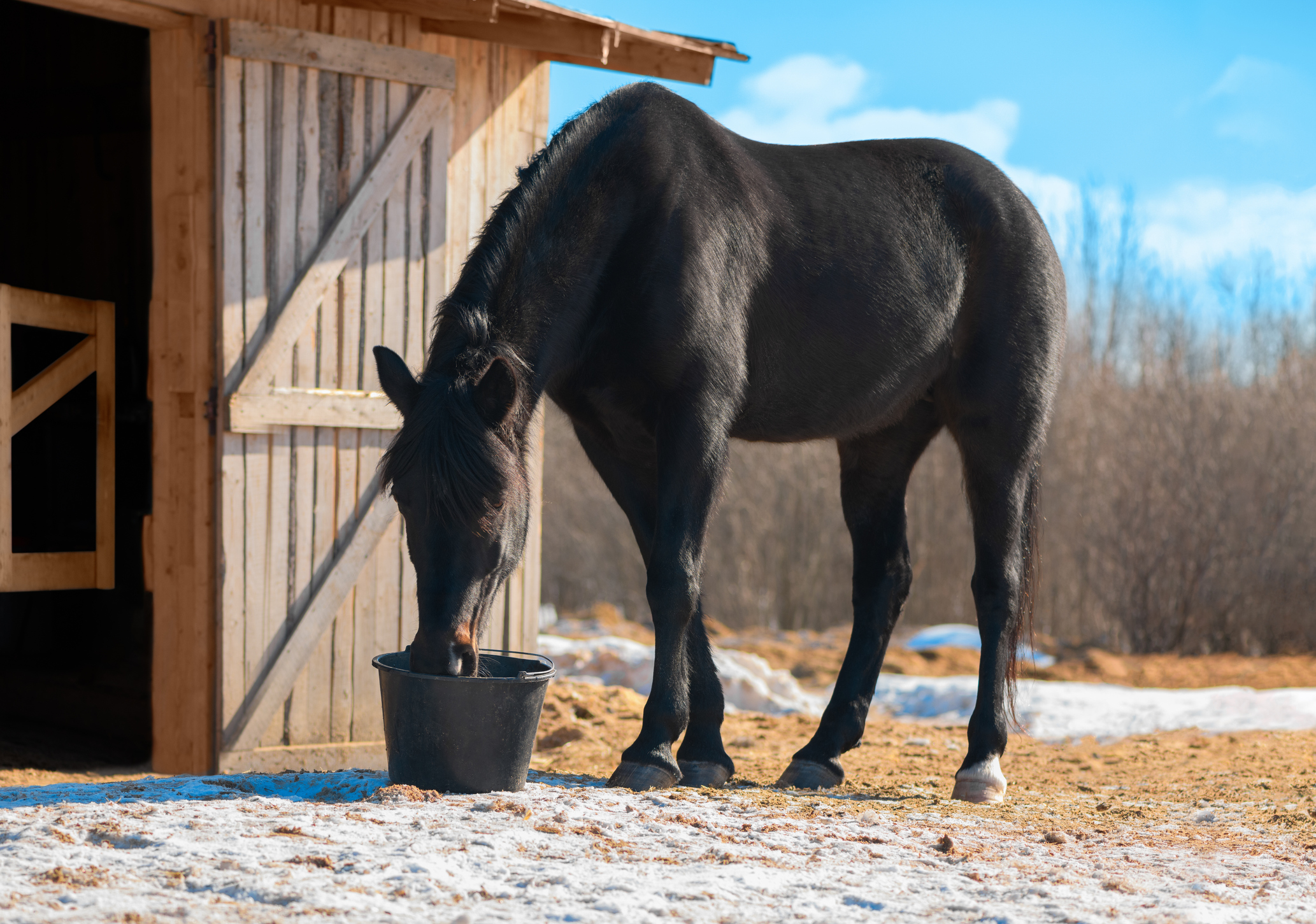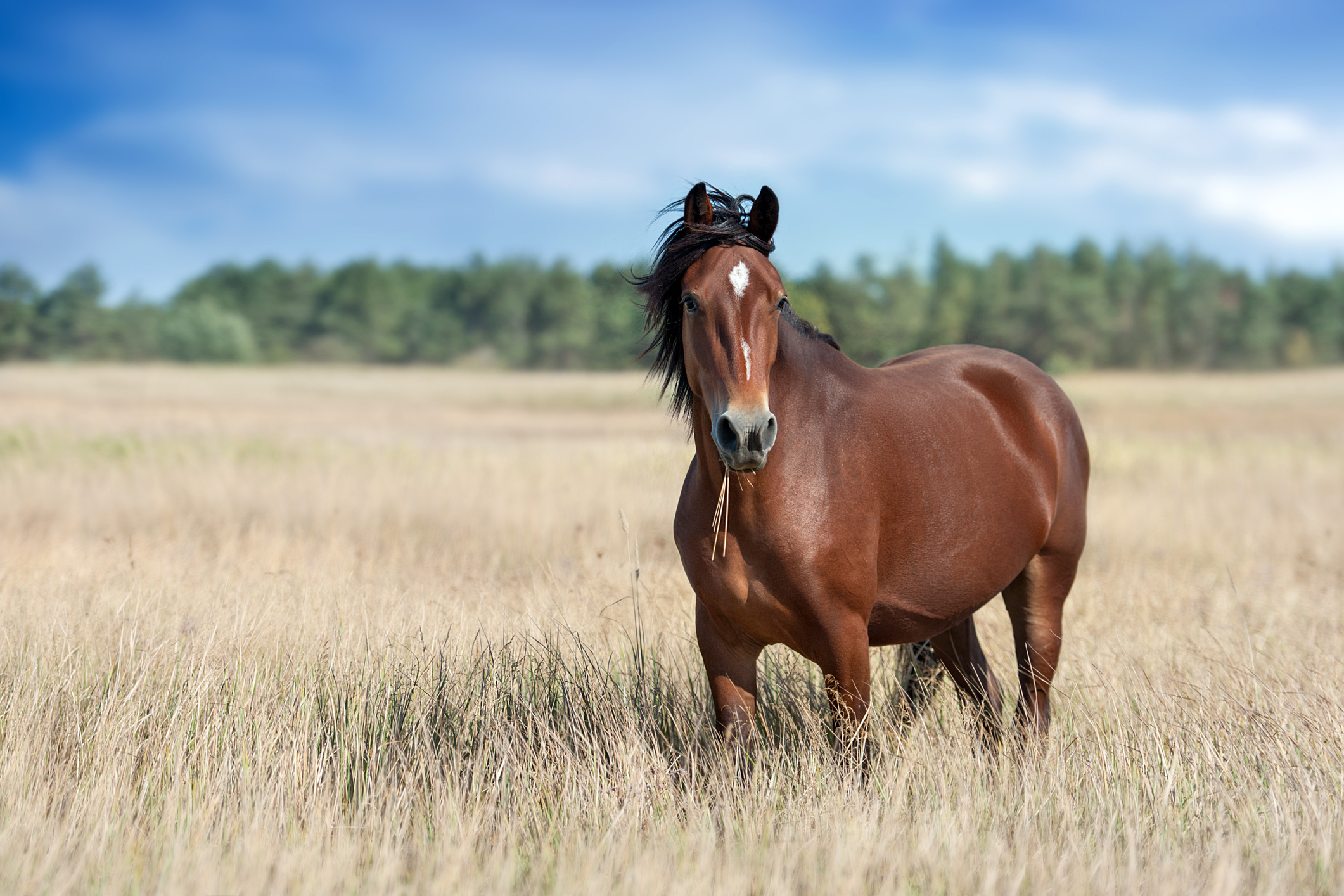Omega-3 fatty acids have been thoroughly celebrated for their range of health benefits for horses. But many people wonder how long they should feed these essential fats to their horses. Is there a magic time frame?
Ultimately, the optimal duration for feeding omega-3 supplements may come down to the horse’s specific health needs and goals.
Essential – Horses Cannot Produce Them
Omega 3 fatty acids are considered essential because horses cannot produce them, and therefore, they must be incorporated into their diets. Omega 3 fatty acids are available in the “natural diet” of the horse from pasture. Therefore, those on good quality grazing year-round may not have the need for additional supplementation; however, for most horses, that is not the case. Omega-3s should, therefore, be included as a regular part of a horse’s diet as long as they are well-tolerated and balanced with other dietary components.
When it comes to supplementation, the benefits of omega-3s can be seen both in the short term and over extended periods. For example, if a horse’s coat looks dull during winter, a few months of omega-3 supplementation can help to restore its shine. However, for more chronic conditions, a longer duration may be needed to ensure maximal benefits.
Conditions Such as Arthritis or Asthma or Heaves
Let’s take conditions such as arthritis and asthma, for example. Researchers found that DHA and EPA supplementation has the potential to improve the ability of anti-inflammatory mechanisms to resolve the inflammatory processes involved in these conditions. However, this incorporation of DHA and EPA did not occur until 60 days after supplementation was initiated (Christmann et al., 2021). This was further supported by a 2023 KER, report that indicated blood levels of EPA and DHA increased 178% and 102%, respectively, within the first month of supplementation and continued to climb to 313% and 197% by 90 days.
Allergies in Horses
If we apply this same thinking to horses with allergies, Omega 3 supplementation should perhaps be incorporated into the diet at least 60-90 days before the expected allergen exposure. This will give the horse’s body time to achieve maximal levels before benefits are needed. This would also apply to horses on grass pasture. If you know your horse will transfer onto a more hay-based diet in the winter, incorporating Omega 3 into the diet prior to coming off pasture would be worthwhile so that there is no reduction in levels.
Breeding Benefits
Stallions are also often fed omega-3 fatty acids for semen quality. The benefits include increased sperm motility and concentration, with significant improvements seen 6 weeks after supplementation is started. However, as sperm produced in the testes takes 60 days to mature, a longer supply is thought to be even more beneficial.
Long Term Supplementation with Omega 3’s
For many owners, ensuring that they are not using unnecessary supplements is important for the horses’ well-being and their pocket. Therefore, it is important to assess why these additions are being used and to match specific conditions to specific products. But when it comes to Omega 3 provision, it is certainly worthwhile considering long-term supplementation.
Research indicates that omega-3 fatty acids, especially from marine-derived sources, significantly increase the content of EPA and DHA fatty acids in red blood cell membranes. However, once supplementation ceases, the levels will start to decline. The exact rate at which omega-3 levels decrease can vary based on factors such as the horse’s diet, metabolism, and overall health. In one study, plasma levels of EPA and DHA returned to baseline within 1 month after supplementation was stopped, and blood levels returned to baseline within 3 months of ending supplementation.
It appears that different fatty acids may have different clearance periods, but importantly, for chronic conditions, continued use is essential to see the prolonged benefits needed to manage them effectively.
Critically Important All Natural Vitamin E
The University of Florida conducted research and found no evidence to suggest that growing horses endure additional oxidative stress when supplemented with fish oil, assuming dietary vitamin E requirements are met. However, further research is still needed, and therefore, carefully incorporating additional vitamin E could minimize potential concerns and enhance body-wide antioxidant defenses. This is just one of the reasons why we include natural Vitamin E into our Omega 3 supplements.
If your goal is to maintain overall health and prevent future issues, incorporating omega-3s into your horse’s diet indefinitely can be beneficial. Continuous supplementation will also provide optimal benefits and help manage chronic concerns.
Questions? jennifer@o3animalhealth.com
Ordering: https://o3animalhealth.com/shop or (855) 366-8822
References
Christmann, U., C.L. Courtney, C.M. Poole, A.L. Emery, J.R. Poovey, C. Hagg, E.A. Mattson, J.J. Scarborough, J.S. Christopher, A.T. Dixon, D.J. Craney, and P.L. Wood. 2021. Dynamics of DHA and EPA supplementation: incorporation into equine plasma, synovial fluid, and surfactant glycerophosphocholines. Metabolomics 17(5):41.
Cunha, I. Influence of omega-3 fatty acid-enriched diet on semen quality of Mangalarga Marchador stallions. Universidade Estadual do Norte Fluminense, Rio de Janeiro, Brazil.
Effect of Supplementation on Stallion Fertility – Kentucky Equine Research (ker.com)



